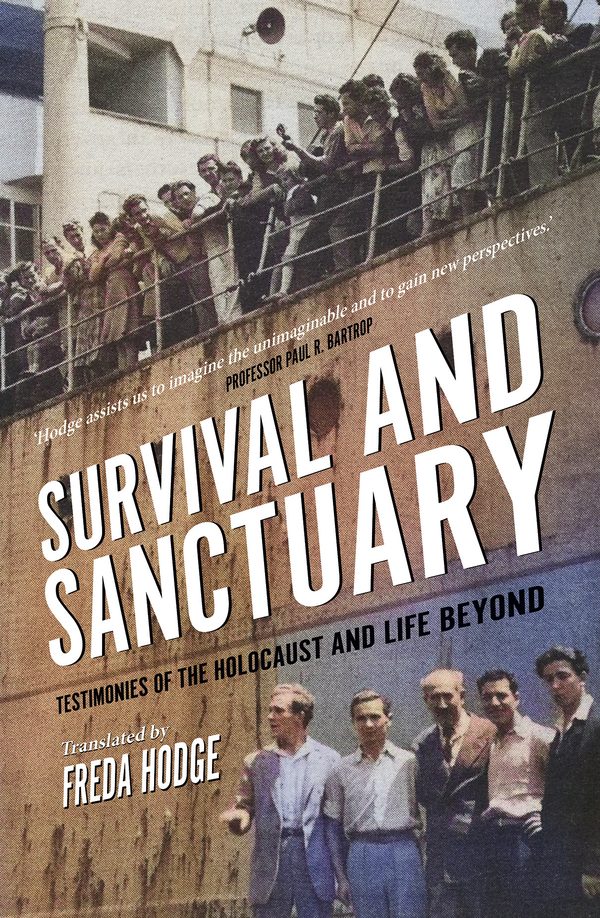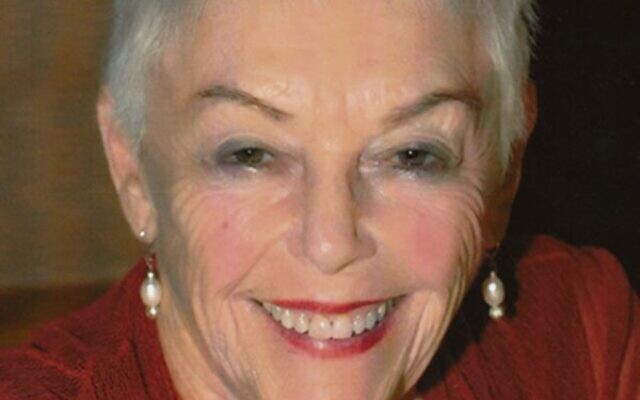Author learned Yiddish to present stories
When asked how prevalent Yiddish is within the community at the moment, Hodge told The AJN, “At one time people knew this language was dying out, but this is not true anymore..."
Freda Hodge is a soft-spoken South African woman who holds degrees in English, Linguistics and Jewish Studies.
She is fluent in Yiddish and Hebrew and has worked at the Melbourne Holocaust Museum conducting interviews with survivors and families.
Bear in mind that up to 85 per cent of the six million Jews who perished during WWII spoke Yiddish. The pitfalls of studying testimonies without understanding Yiddish are overwhelming.
Hodge realised that unless she knew Yiddish she was handicapped when speaking to the survivors. She took lessons and attended a summer course in Jerusalem. On her return, she continued with a Yiddish reading group.
“I felt it was well on the way and all that time I’ve been volunteering at the Holocaust Centre taking testimonies.”

Jayne Josem, museum director at the Melbourne Holocaust Museum (previously known as the Holocaust Centre) gave Hodge a booklet containing seven testimonies recorded in Melbourne and written in Yiddish.
“We knew that these people had arrived as refugees in Melbourne and might be known to a number of Melburnians,” Hodge said.
“The primary value of these early testimonies is that the memory of the survivor is not yet contaminated by the passing of time and by outside influences such as media reports, radio and film which bombarded the public.”
Hodge maintains that a story related by a newly-arrived person that is “fresh in their mind”, could be more accurate and complete.
“Whereas if you are interviewing a Holocaust survivor who has been in Melbourne for 50 years and came here when they were 20, I think it’s true to say that a lot of people’s memories can change over the years.
“I became not only more interested but began to realise that the Holocaust was not really over for a lot of survivors, in the sense that they presented lots of the trauma, the things they were not able to overcome, although by and large, they did pretty well here in Australia,” she said.
“What began as a translation of this booklet became my ‘at home baby’ so to speak.
“I already had a book published with translations of 30 testimonies from survivors in displaced persons’ camps in Germany soon after liberation. This book was titled Tragedy and Triumph. My new book is different in that the focus is on Melbourne.”
Hodge managed to track down descendants of the seven writers and interview them.
“I found that the Jewish Museum of Australia had some remarkable material concerning these survivors, but particularly Leon Holzer.
“They had a large file on him in their archives.”
The archivist allowed Hodge access to the file.
“Once I dealt with Leon, I realised the rest [of the seven] could have fascinating stories to tell about how they’re settled; what happened in their lives.”
The other six testimonies were given by Tobcia Blicblau, Maria Roza Kamsler, Rivka Fogel, Shlomo Lipman, David Tuszynski and Mark Fromer.
When asked how prevalent Yiddish is within the community at the moment, Hodge told The AJN, “At one time people knew this language was dying out, but this is not true anymore.
“All over the world, groups and clubs have sprung up, like learning from a handyman who teaches you a new craft. The Kadimah itself has five or six Yiddish courses and Melbourne University has a department dedicated to teaching Yiddish.”
Freda Hodge’s book Survival and Sanctuary; Testimonies of the Holocaust and Life Beyond printed by Monash University Publishing will be launched by Professor Paul Bartrop at the Melbourne Holocaust Museum tonight (Thursday) at 6.45pm.
Further information at mhm.org.au/event/book-launch-survival-and-sanctuary.
Survival and Sanctuary; Testimonies of the Holocaust and Life Beyond is available from the Melbourne Holocaust Museum and all good bookstores.


comments